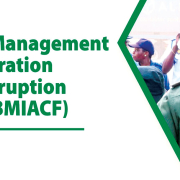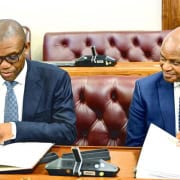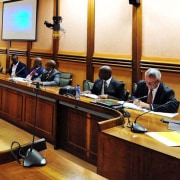|
Getting your Trinity Audio player ready...
|
By Thato Mahlangu
Law enforcement agencies have said they are stepping up their efforts to curb public procurement corruption.
During a joint presentation, which was held almost two weeks ago, the Special Investigating Unit (SIU), the National Prosecuting Authority (NPA) and the Hawks assured members of Parliament (MPs) that these units are working towards rooting out corruption in public procurement.
According to an article by the Independent Online, the SIU head Advocate Andy Mothibi told the MPs that the three law enforcement agencies, which form part of the Anti-Corruption Task Team (ACTT), are investigating cases which were brought to the investigation unit by members of the public.
These cases are investigated by each unit, Mothibi said, adding that they range from embezzlement of funds and bribery of government officials and those involved in the awarding of tenders, to businesses that submit inflated or false invoices, among other exploitations of the Covid-19 pandemic.
South Africa has a long-standing problem of corruption in public procurement. Media reports have shown that during the pandemic, public procurement corruption has worsened. Billions of rands have been raised by the government in the form of relief funds which are geared towards assisting struggling communities during the national lockdown. But claims of missing monies have been reported even though there is the Public Finance Management Act which is meant to prevent people from stealing from the public purse.
Mothibi said even though there were allegations of public procurement corruption, he assured the public that monies which are said to have been stolen will be recovered through litigation processes.
The units are also investigating cases individually. Mothibi said some matters will referred to other units, depending on the nature of the crime that is been investigated.
Holding government accountable
Corruption Watch (CW), in its efforts to hold the government accountable for what it spends, sent a letter to the National Treasury on Thursday, 7 May 2020, expressing its concern regarding the repeal and release of different instruction notes relating to emergency procurement during the lockdown.
These instruction notes have created legal uncertainty and increased risk of corruption due to the lack of transparency or provision for monitoring procurement by third parties, said the organisation.
CW’s head of legal and investigations Karam Singh said the move by the three units was a positive step in fighting procurement corruption.
“We have heard about food parcel corruption and other issues reported but the reality is at present – it is a massive challenge to monitor government procurement because of the lack of transparency. Information is not published or readily accessible. This means we are reliant on whistle-blowers and that is often long after the fact of the procurement irregularity,” he said.
Singh said the collaboration between the SIU and the task team means that a lot could be achieved.
“With an SIU proclamation and collaboration of the ACTT, matters can get to law enforcement quicker and there is a greater chance that stolen assets can be recovered and contracts cancelled.”
Listen to Singh here: https://soundcloud.com/thato-mahlangu-632772388/procurement-process-under-scrutiny
Public procurement law too weak
Public Affairs Research Institute researcher Ryan Brunette and Wits law professor Jonathan Klaaren told News24 that the South African public procurement law needs a tougher approach before being enforced.
Brunette and Klaaren said: “The Public Procurement Bill does not follow through on this final commitment, insofar as it fails to underpin public procurement law with a credible enforcement strategy.”
The bill seeks to ensure that there is integrity in the procurement process among other things. It has been in process since 2013 and was recently published for public comment, with a deadline of 31 May.
Look out for these instances as they crop up often.








